How To Best Support The Immune System

It’s October, and we all know what that means right!? – visits to the pumpkin patch, apple cider, colourful falling leaves, pumpkin spice everything, and of course, Halloween! We also feel the whisper of winter which is right around the corner. What does all of the previously mentioned mean for our health though?
In short, October usually brings with it a major shift in weather patterns. This shift can impact the way that our bodies are able to adapt and often results in the increase of colds, flus, and other illnesses. The dreaded, “Flu season” typically begins in October, and peaks in December – although Flu season officially lasts through January. Those that are at most risk are children under the age of 5, adults over the age of 65, pregnant women, and nursing home residents and patients of long-term care facilities. With that being stated, it is now a good time to address the elephant in the room – COVID-19! We won’t focus too much on addressing the symptoms of COVID because unless you’ve been hiding under a rock, you’ve probably been bombarded with what to look for and how to prevent catching it by now. The reality, however, is that COVID shares one similarity with the other ailments mentioned above – the strength of the immune system! The flu, cold, and COVID all depend on the strength of the immune system to prevent their onset, but also to fight them off as well.
What is the immune system exactly?
The Immune system is a network of cells and proteins that actually defend the body against infection. In addition, when it successfully defends the body from a specific type of pathogen, it’ll actually remember what was needed to defeat it. This is important because the next time that you catch that same pathogen, the body can quickly defeat it and keep you healthy.
Knowing this, you’re probably wondering what you can do to keep your immune system as strong and healthy as possible. The answer is very complex and would surpass the scope of this article, but essentially involves taking care of your body. The following actions are imperative to a strong and healthy immune system:
- Adequate sleep (8+ hours per night)
- Drinking sufficient water (8-10 glasses per day)
- Getting at least 30 minutes of physical activity per day (increased heart rate)
- Properly managing stress levels
- Eating a variety of fruits, vegetables, grains, protein, and fats
In addition to the above, there are a variety of supplements that can be taken that are proven to support the immune system.
1. Vitamin C:⠀
Has potent antioxidant properties and is also a cofactor for many cellular functions in the innate and adaptive immune system. Vitamin C supports oxidant scavenging activity of the skin, which helps to control environmental stress on the skin. ⠀
2. Vitamin D:⠀
Has been studied extensively and has demonstrated its ability to support the innate and adaptive immune system. In addition, insufficient vitamin D has is directly associated with autoimmunity and increased risk of infection.
3. Zinc:⠀
Zinc has been demonstrated to support both the innate and adaptive immune system. It has the ability to coordinate effective immune responses. This prevents the immune system from over-fighting an infection (which is actually counter-productive), and helps it to regulate how aggressive it should be at attacking a given pathogen.⠀
4. Echinacea:⠀
An herb that increases the sheer amount of white blood cell activity and actually stimulates alkylamines, polysaccharides, and chicoric acid to tweak and optimize their functioning and role in immune action.⠀
5. Glutamine:⠀
Glutamine is an amino acid that has healing and repairing properties. It is especially useful in the healing of irritated tissues of the digestive tract. It works to support digestive health by supporting beneficial gut flora.
6. Greens and Reds Supplements:⠀
These supplements allow for high ORAC (Oxygen Radical Absorbance Capacity) value superfoods to be introduced into the body. The higher the ORAC value of these superfoods, the better the body can do at absorbing and eliminating those oxidants. ⠀
7. B Vitamins:⠀
Vitamin B (B5, B6, B12) aid in Vitamin B5 aids with energy production and fighting off infection. Vitamin B6 helps fight off infections and is needed for the cells to function within the body. Vitamin B12 is needed to produce red blood cells in the body and helps the body produce infection fighting cells. ⠀
8. Elderberry:⠀
Effective antiviral activity which has made it traditionally effective against the flu and herpes simplex. ⠀
9. Probiotics:
Known as “friendly bacteria” or “good bacteria.” Probiotics are bacteria that live in the body, and instead of harming the body, help it work well. Often, probiotics help protect the body from infections caused by harmful bacteria or other germs. Studies have shown that supplementation with probiotics improves immunity, aids digestion, and enhances overall wellbeing.
To find the supplements that work best for you, or for more training ideas, visit us in store and have a chat with one of our experts. We can also be reached on Facebook and Instagram. If you try any of the immune supporting supplements above, be sure to tag us on social media! We are #ReflexNation.




